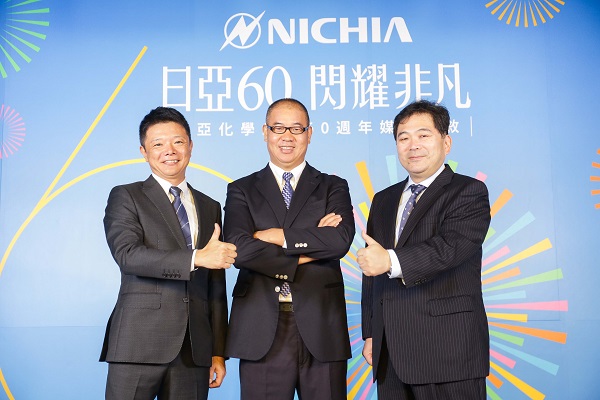(Author: Ivan Lin, Editor-in-Chief, TrendForcehttp:// Translator and Editor: Judy Lin, Chief Editor, LEDinside)
Nichia explained the legal course of actions it took throughout 2016 were not aimed at particular manufacturers, but was part of their general intellectual property protection policy.
The German Federal Court’s decision to validate Nichia’s YAG patent in August 2016 overturned a first instance judgment by the German Federal Patent Court from 2014 that found the patent was invalid, a landmark win that will propel the review of similar patent suits from the past.
The purpose of Nichia winning a favorable ruling from the German Federal Court back in August was to “receive court validity without adjusting the scope of the patent suit,” said Hinori Takagi, General Manager, Intellectual Property Department, Legal and Intellectual Property Dept., Legal & Intellectual property Division Administration Unit, Nichia.
 |
|
Left to right: Takashi Sakamoto, Principal Technical Officer, Optoelectronics Products The BU, Nichia, Chun Chia Tai, Chairman and President of Nichia’s Shanghai and Taiwan offices,Hinori Takagi, General Manager, Intellecutal Property Department, Legal and Intellectual Property Dept., Legal & Intellectual property Division Administration Unit, Nichia. (Photo courtesy of Nichia)
|
Under the court’s ruling, Nichia’s patent EP 936 682 (DE 697 02 929), i.e. the “YAG patent” is valid, and the judgment is final and legally binding, with no room for further appeals from Everlight.
The ruling has paved the way to Nichia’s legal wins, on Nov. 17, 2016, the Dusseldorf District Court granted a preliminary injunction on Everlight Electronics sales of three white LED products in Germany on the request of Nichia.
In past LED patent suits, most manufacturers will ask for amendments to be made to the patent scope, which will affect the outcome of the ruling. This will often depend on the infringed products relationship and the scope of the patent suit, which the court will meticulously review, the outcome might be a win or loss for manufacturers.
However, Nichia was granted a complete victory, where not only the YAG patent’s validity was upheld, no additional adjustments to the scope of the patent claims were made. Following the German court’s ruling, Nichia and Everlight’s earlier patent infringement disputes in Germany will be reignited, and a final ruling on the legal case is projected to be reached by 2017. Nichia noted settlement of ongoing patent suits against Everlight in Germany will also have a positive impact on ongoing YAG patent lawsuits in other countries.
Nichia’s white LED Christmas light patent suits in Germany dating back to 2012, and its ongoing LED patent suits in U.S. states including Texas, Michigan Federal Court, are expected to arrive to a final ruling after 2017.
Nichia reiterated its ongoing LED patent suits with B&Q, Vizio, or Chinese LED manufacturer TCL, and others are not aimed at targeting specific manufacturers, but is to protect the company’s intellectual property rights. The company will actively protect innovative technology and value the importance of intellectual properties, in the future they will take action to protect patent rights even on a global scale. The company is applying for micro-LED patents.












